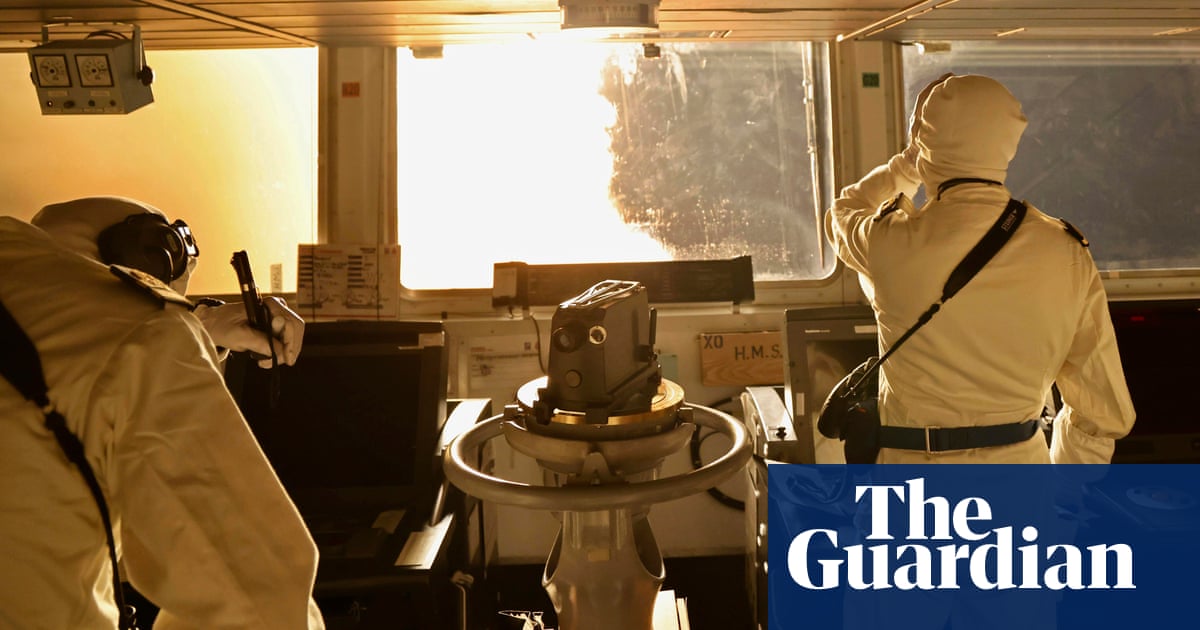
The United States and United Kingdom have carried out airstrikes and launched missiles in areas of Yemen controlled by the Houthi rebels. Their goal is to stop attacks on ships in the Red Sea, according to announcements made by Washington and London.
According to Joe Biden, the president of the United States, an attack was carried out overnight in Yemen with involvement from American and British forces, as well as support from Australia, Bahrain, Canada, and the Netherlands. The attack targeted at least 60 locations in 16 different areas.
Biden stated that these strikes were a direct retaliation to the unprecedented attacks by the Houthis on international ships in the Red Sea. These attacks included the use of anti-ship ballistic missiles, which had never been used before.
“These assaults have put American individuals, civilian sailors, and our allies at risk, disrupted trade, and challenged the freedom to navigate.”
Biden stated that he is prepared to authorize additional strikes on Yemen if Houthi attacks on shipping persist. He emphasized his commitment to safeguarding our citizens and ensuring the unobstructed flow of global trade.
The US Central Command announced that the airstrikes conducted overnight were aimed at destroying radar systems, air defense systems, and storage and launch sites used by unmanned aerial systems, cruise missiles, and ballistic missiles.
Lt Gen Alex Grynkewich of the United States Air Force stated that the US carried out intentional attacks on more than 60 sites in 16 locations controlled by Iranian-supported Houthi militants. These targets included nodes for command and control, storage units for weapons, launching systems, facilities for production, and radar systems for air defense.
The Houthi forces stated that they immediately responded to western warships, but a high-ranking US military official stated on Thursday night that there has been no visible Houthi reaction thus far.
“At this time, we have not witnessed any direct retaliation against our US or coalition allies,” stated a US representative. They also stated, “We are ready to protect ourselves if necessary.”
On Friday, Mohammed Abdulsalam, spokesperson for the Houthis, stated that there was no valid reason for the attacks and pledged to persist in attacking ships en route to Israel.
The military strikes on multiple cities in Yemen have been strongly denounced by Iran’s foreign ministry spokesperson, Nasser Kanaani. He stated that these attacks represent a blatant disregard for Yemen’s sovereignty and territorial integrity, as well as a violation of international laws, regulations, and rights. The Lebanese armed group Hezbollah has also expressed condemnation towards the strikes.
The airstrikes in the west occur during a period of increased tensions in the Middle East. Israel’s conflict in Gaza has been ongoing for four months, and there are also intense missile exchanges on their northern border with the Lebanese Hezbollah militia, supported by Iran.
British Prime Minister Rishi Sunak has announced that the UK will be participating in the strikes. He stated, “We have taken limited, necessary, and proportionate action in self-defense, in conjunction with the United States, against targets linked to these attacks. This is to weaken the military capabilities of the Houthis and safeguard global shipping.”
Early reports indicated that approximately twelve locations in Yemen were attacked by fighter jets from the US Navy, US Air Force, and Royal Air Force. Additionally, Tomahawk cruise missiles launched from ships were used in what appears to be a widespread attack aimed at deterring the Houthis and preventing future attacks in the Red Sea region.
A high-ranking official from the US government stated that this was a significant move, carried out with the goal of greatly reducing the Houthis’ ability to carry out the same types of attacks they have been launching in recent weeks.
The Pentagon maintained that the strikes were aimed at minimizing harm to civilian casualties.
A high-ranking official from the US military stated that these targets were carefully chosen to reduce the chances of causing harm to innocent bystanders. The intention was not to attack civilian areas. Instead, the focus was on specific capabilities and locations, using precise weaponry.
He emphasized that the US-UK intervention was distinct from the 22-country naval coalition, known as Operation Prosperity Guardian, formed to protect shipping in the Red Sea.
In mid-October, the Houthis launched a campaign in the southern Red Sea region to target shipping in support of Hamas in Gaza. They used missiles and drones created in Iran for this purpose. While they claim to only target ships associated with Israel, their actions have not consistently aligned with this statement. The Houthis are supported by Tehran.
According to the US Central Command, the Houthis have carried out a total of 27 attacks, with the most recent one occurring on Thursday. This attack involved the rebel group launching a cruise missile into the shipping lanes in the Gulf of Aden.
However, the US and UK made the choice to initiate a military retaliation after the Houthis carried out a drone and missile strike targeting a group of American and British naval ships in the southern Red Sea. The audaciousness of the attack prompted warnings from both the US and UK on Wednesday of potential repercussions.
The United States and the United Kingdom have positioned warships in the southern Red Sea area to safeguard trade on one of the most heavily trafficked water routes in the world. Prior to the Houthi attacks, ships traveling through the region accounted for 15% of international maritime trade passing through the Suez Canal to the north.
The Ministry of Defence in Britain reported that four RAF Typhoon fighters utilized Paveway guided missiles to attack two locations in northwestern Yemen. These targets were identified as the airfield in Abbs, which is believed to have been a launching point for Houthi cruise missiles and drones, and a site in Bani that was allegedly utilized for reconnaissance and attack drones.
The Ministry of Defense stated that great caution was exercised to reduce potential harm to innocent people. They also mentioned that they are currently evaluating the outcome of the attacks. According to early reports, the Houthis’ capability to endanger commercial vessels has been weakened.
A representative of the Houthi group stated that Yemen has been targeted by attacks from the US, Israel, and Britain, particularly in the regions of Sana’a, Hodeidah’s port area, and the cities of Saada and Dhamar.
According to sources in Sann’a, the capital of Yemen, there were three loud explosions reported by witnesses. However, information is still being gathered and initial reports cannot be confirmed at this time.
On Thursday, the United States stated that it must combat and overcome the dangers posed by the Houthis, as the leader of the Yemeni group, Abdul-Malik al-Houthi, threatened to launch new attacks on western vessels if they were targeted.
Source: theguardian.com
















